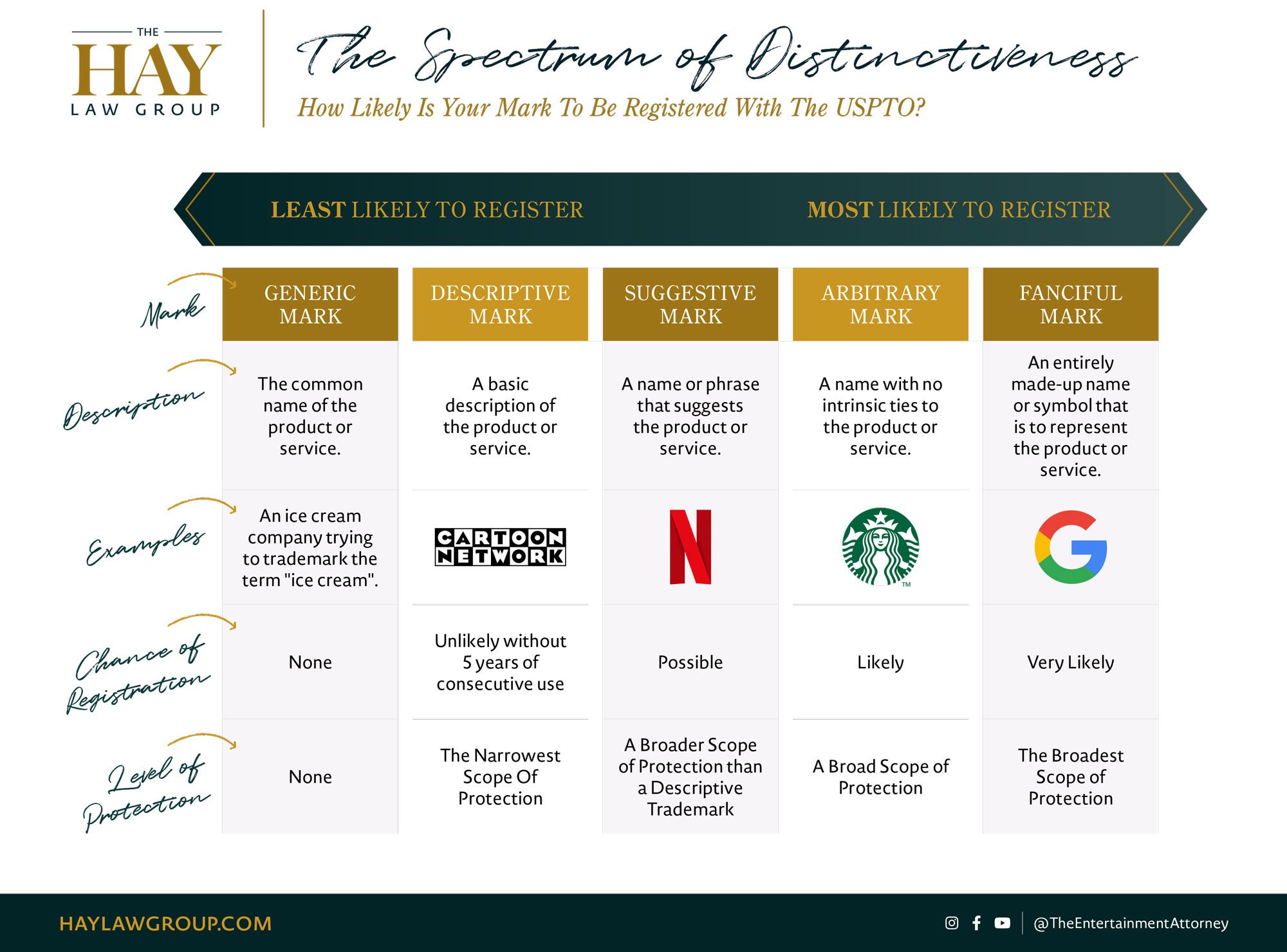
Under federal trademark law in the US, trademarks are categorized along a spectrum of distinctiveness ranging from least to most distinctive: generic, descriptive, suggestive, arbitrary, and fanciful. The level of distinctiveness of a trademark determines the scope of legal protection it can receive.
Generic trademarks are common words or phrases that name the good or service itself. They cannot function as trademarks at all and receive no legal protection. Examples include “car” for vehicles or “computer” for computers.
Descriptive trademarks directly describe some characteristic, quality, or feature of the good or service. They are not inherently distinctive but may acquire distinctiveness through use and advertising over time. Examples include “Tasty” for food products or “Speedy” for courier services. Descriptive marks are eligible for trademark protection once they have acquired secondary meaning.
Suggestive trademarks suggest some attribute of the good/service and require consumers to use imagination and perception to determine the nature of the goods. Examples include “Greyhound” for bus transport or “Tide” for laundry detergent. Suggestive marks are inherently distinctive and entitled to immediate trademark protection.
Arbitrary trademarks use common words in an unfamiliar, random, or unexpected way in relation to the goods/services. Examples include “Apple” for computers or “Amazon” for an online retailer. Arbitrary marks are inherently distinctive and receive strong protection.
Fanciful trademarks are invented words made up solely to function as trademarks. Examples include “Xerox” for photocopying machines or “Kodak” for photography products. Fanciful marks receive the highest level of inherent distinctiveness and protection.
In summary, the spectrum of distinctiveness categorizes trademarks based on their level of inherent distinctiveness and scope of legal protectability. Brand owners should aim to select inherently distinctive trademarks high up on the spectrum to receive the most robust protection under trademark law.
If you would like more information about trademark registration and assistance with filing your trademark, please schedule your free ten-minute consultation now!